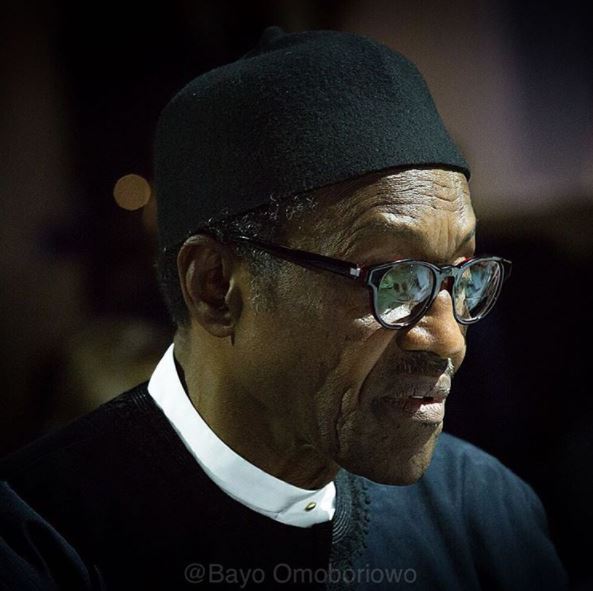The emergence of the smartphone technology changed the business of photography forever. Everyone now takes pictures anywhere with ease. A time was, when it was never that easy. The likes of Kodak dominated the industry then.
Today, Kodak is gone because it did not pay close attention to the threat posed by the smartphone technology to its business. It did not adapt to the changing nature of its business environment. The rest now is history. Sustainability is the potential new threat, if ignored or taken for granted.
Sustainability has become a new mantra, a philosophy of sorts. It however means different things to different people. If one takes the literary meaning of the word, it simply suggests longevity or the ability to continue to be in existence irrespective of counteracting pressures. Another word often used in this regard is resilience. While longevity and resilience are integral to sustainability, they tend to, somewhat, present a narrow and limited view of sustainability.
The broad view of sustainability goes beyond resilience and longevity and emphasises the need to balance environmental, social, and economic considerations in decisions. It is directly linked to the quest for sustainable development – a development that does not inhibit future generations in their quest for development. It recognises the nested interdependency amongst the economy, society, and environment.
Advertisement
In other words, the success of the economy is dependent on the viability of society, and the success of society is linked to the viability of the natural environment. As such, without the environment, there will be no society, and without society, there will be no economy. The three are interwoven. Sustainability thus strives to ensure the integrity of this nested interdependency. This is very much at the heart of the Sustainable Development Goals (SDGs).
In July 2015, the UNEP Finance Initiative and Nigeria’s Financial Services Regulation Coordinating Committee (FSRCC) co-hosted an event on sustainability for senior officials and Board Members of the Nigerian financial regulatory community. The event was to raise awareness and build capacity around the concept of Sustainable Finance – i.e. the application of the SDGs to, and the financing of the SDGs by, the financial services sector.
Members of the FSRCC include the Central Bank of Nigeria (CBN), Nigeria Deposit Insurance Corporation (NDIC), Securities and Exchange Commission (SEC), National Insurance Commission (NAICOM), Corporate Affairs Commission (CAC), Federal Ministry of Finance (FMF), Nigerian Stock Exchange (NSE), Nigeria Commodity Exchange (NCX), the Federal Inland Revenue Service (FIRS), and the National Pension Commission (PenCom).
Advertisement
Following the event, the Nigerian financial regulatory community agreed to develop and implement a national sustainable finance roadmap. This sustainable finance roadmap requires each member of FSRCC to develop and implement operational and industry strategies founded on the principles of sustainable development. In other words, members of FSRCC are required to ensure that they embed the principles of sustainability in their everyday organisational practices as well as in the industries they regulate.
Some of the issues to be covered include the integration of environmental and social risks in investment and lending decisions, proactive pursuit of financial inclusion, recognition and respect for human rights, health and safety in the workplace, women economic empowerment, minimisation of direct and indirect carbon emissions, waste management, impact investing, good governance and reporting practices, et cetera. It is expected that each regulator will complete the process before December 2019.
With the full spectrum of the Nigerian financial regulatory community covered, it is obvious that all sources of finance in Nigeria – debt and equity – are now required to respect and reflect sustainability principles. Finance is the life-blood of any business. Therefore, for any firm to have a future in Nigeria, it must conform to the tenets of sustainability; and herein lies a danger.
For a long time now, Nigerian businesses have treated sustainability as a luxurious option. Due to the perceived challenges of doing business in Nigeria, the focus of most businesses has always been on survival first. As such, the pursuit of sustainability is seen as going the extra mile, which isn’t necessarily good for business. This is a myth. It is also poor thinking.
Advertisement
There is significant empirical evidence that sustainability is good for business. Imagine you run a bank with 600 branches in Nigeria. Imagine each branch spends an average of N1.5m on diesel every month. Your annual spend on diesel is a whooping N10.8bn. This is enormous and not good for your balance-sheet and the natural environment. How much of this N10.8bn could be saved, for instance, through alternative sources of energy and other efficiency measures? The same applies to paper usage, business travels, waste management, water consumption, health and safety in the workplace, et cetera.
In sum, the sustainability turn is a quest for effectiveness and efficiency. It is first and foremost an organizational orientation committed to reducing its negative impacts and increasing its positive impacts on its different stakeholder groups (e.g. customers, shareholders, employees, regulators, the government, unions, local communities, et cetera). It is about Creating Shared Value – i.e. win-win outcomes for business and society. It is a business orientation and culture that recognises the firm as an entity embedded in a network of relationships with different stakeholder groups. It is a form of self-regulation driven by the values and philosophy of a business.
For Nigerian businesses to benefit from it, they need to start seeing it as a better way of managing risks, exploring opportunities, and adapting to changing business contexts and expectations for long term success. They will need to go beyond the piecemeal approach of Corporate Social Responsibility (CSR), which often attracts strong cynicism in boardrooms, as corporate philanthropy – an extra cost, which most businesses will like to avoid. They need to embed sustainability thinking in their strategic decisions and everyday practices.
However, based on many years of working with businesses in this area, one key way to make a success out of commitment to sustainability is to see it as a ‘business paradigm’, a culture that should permeate all facets of business decisions. It is a way of life – the ‘how’ of “how we do business”. It is not primarily a strategy, but a lens through which strategy is crafted and implemented. In other words, commitment to sustainability should first be a mindset before being a strategy. The sustainability mindset offers businesses committed to it a richer and more advanced paradigm to continuously challenge their purpose and align to their core values, aspirations and mission. Without this mindset, a sustainability strategy is, at best, hollow and unsustainable.
Advertisement
Since October 2016, I have been working with the National Pension Commission (PenCom), as a Scholar in Residence, to embed sustainability thinking and practice in the organisation and mainstream it in the industry. The initiative started with a strategic capacity building partnership between PenCom and the University of Edinburgh Business School, United Kingdom, back in March 2015. Since then, PenCom and the pension industry operators already see the benefits of sustainability thinking and are keen to translate it into practice. The idea is for both to eventually co-create a set of Sustainable Pension Principles for the industry. This will be a legacy project in line with the Nigerian Sustainable Banking Principles of the Central Bank of Nigeria (CBN). I have no doubts that other financial regulators will follow the same route soon.
It is obvious that sustainability is no longer an option. It is fast becoming a necessity. The changing finance landscape orchestrated by the sustainability turn in Nigeria can either mar or save your business. As Hölderlin – a German poet – put it: “…where danger lies, also lies the saving power”. Now is the time to make the necessary adjustments before it is too late. Luck meets the prepared, as it is said. The choice is yours.
Advertisement
Amaeshi is a scholar in residence at the National Pension Commission (PenCom), Nigeria, and professor of business and sustainable development at the University of Edinburgh Business School, United Kingdom. He tweets @kenamaeshi
Advertisement
Views expressed by contributors are strictly personal and not of TheCable.







